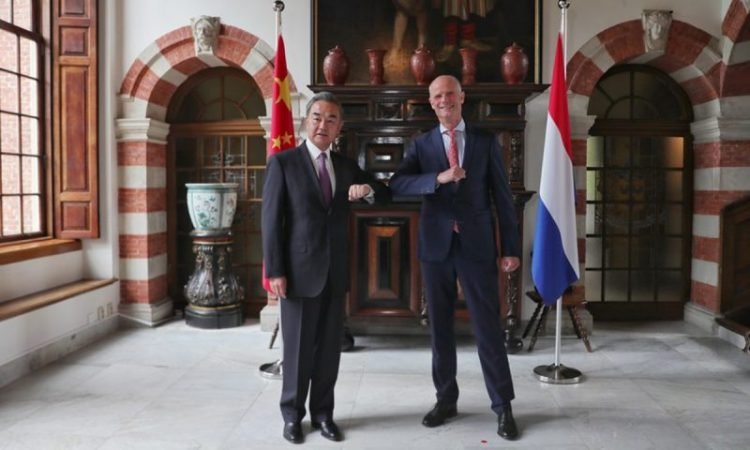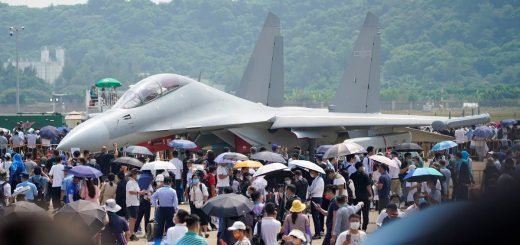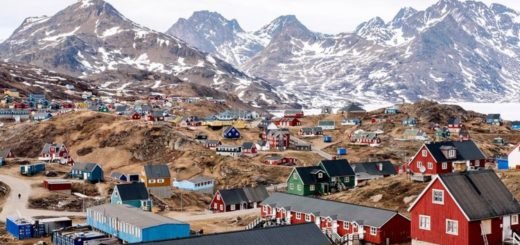Wang Yi’s Europe Tour: An attempt at charming Europe

As per the Chinese Ministry of Foreign Affairs announcement, the Chinese Foreign Minister, Wang Yi, has taken off on his tour of Western Europe, through the countries of Italy, the Netherlands, Norway, Germany and France. The tour which kicked off on August 25th will come to an end on September 1st. Wang Yi will be visiting the continent for the first time since the Pandemic took over the world and in this, his strategy is clear, to hastily bridge the rising gap between China and Europe and lobby the Western European leaders in these trying times of rivalry with the USA.
Europe has been recently quite critical of China. The supposed belief of the lax handling of the COVID-19 Pandemic and trying to emerge as a global leader through its highly publicised “mask diplomacy” did not sit well with many Europeans. The issue of human rights violations, especially in XUAR (Xinjiang Uyghur Autonomous Region) and Hong Kong, only added to the hardening of Europe’s stance on the country. US Secretary of State, Mike Pompeo’s statements against China on his Central and Eastern Europe tour were also not favourable either. “What’s happening now isn’t Cold War 2.0,” Pompeo said. “The challenge of resisting the CCP threat is in some ways much more difficult.” He also was seen persuading the countries he visited against China’s 5G Huawei systems due to security threats.
The spokesperson of the Foreign Ministry of China Zhao Lijian summarised what exactly Wang Yi has in mind for his tour. “Through this visit, China hopes to achieve three goals: that the two sides will act on Chinese and European leaders’ consensus and advance major political and economic agenda; deepen cooperation on fighting the virus and keeping the global industrial and supply chains stable, and further discuss cooperation in emerging sectors like the digital economy and green economy, send out the message of jointly upholding multilateralism and improving global governance and contribute more to world peace, stability and development.” It thus becomes quite clear from these goals that China aspires to re-establish and strengthen ties with Europe in the light of its clear worsening of tensions with the USA. It wishes to emerge itself as a norm-following global partner while at the same time deeming the USA as a deviant actor.
Italy was Wang Yi’s first stop and also the first major democratic country which signed up for its Belt and Road Initiative which is a massive global investment plan that includes major infrastructure capital to create a channel for trade and China’s construction industry. On his visit, he retaliated to Pompeo’s earlier comment on China without naming the USA, “On the so-called new cold war … China has no intention in launching any new cold war. We are resolutely opposed to any promotion of a new cold war”. He warned Italy to stay away from the new cold war the USA is endorsing and instead focus on economic cooperation with Beijing. China also carefully heard Foreign Minister of Italy Luigi De Maio’s critique of China’s handling of the human rights violation in the certain provinces and application of the National Security Law in Hong Kong. Wang Yi also kept from mentioning much about the Huawei 5G network system and so did Italy.
The rest of the trip of Wang Yi is expected to be more or less the same. While China aims for closer diplomatic ties and economic cooperation, the countries will be wary of China’s repetitive expansionist policies and human rights violations. Lucrezia Poggetti, an analyst at the Berlin-based Mercator Institute for China Studies (MERICS), said she expected Hong Kong and human rights to be “contentious issues” throughout Wang’s trip in Europe.
Meanwhile, many Hong-Kongers and Tibetans gathered to protest against Wang Yi’s tour of Western Europe. Pro-democracy activist Nathan Law was also seen joining them at Fernesina Square. The activist highlighted the human rights violations carried out by the Chinese government and the need to be aware of CCP’s growing infiltration tactics and expansionist nature. He also urged the international community to recognise China’s violation of Human Rights in Xinjiang, Tibet, Inner Mongolia region and Hong Kong.
Europe now has to try and navigate its course through the growing rivalry that has already been deemed something of a cold war by Mike Pompeo himself. It might seem like Europe might have something of an upper hand in this situation but it is swinging like a pendulum between two powerful economies which is trying to establish their spheres of influence in the area.



















